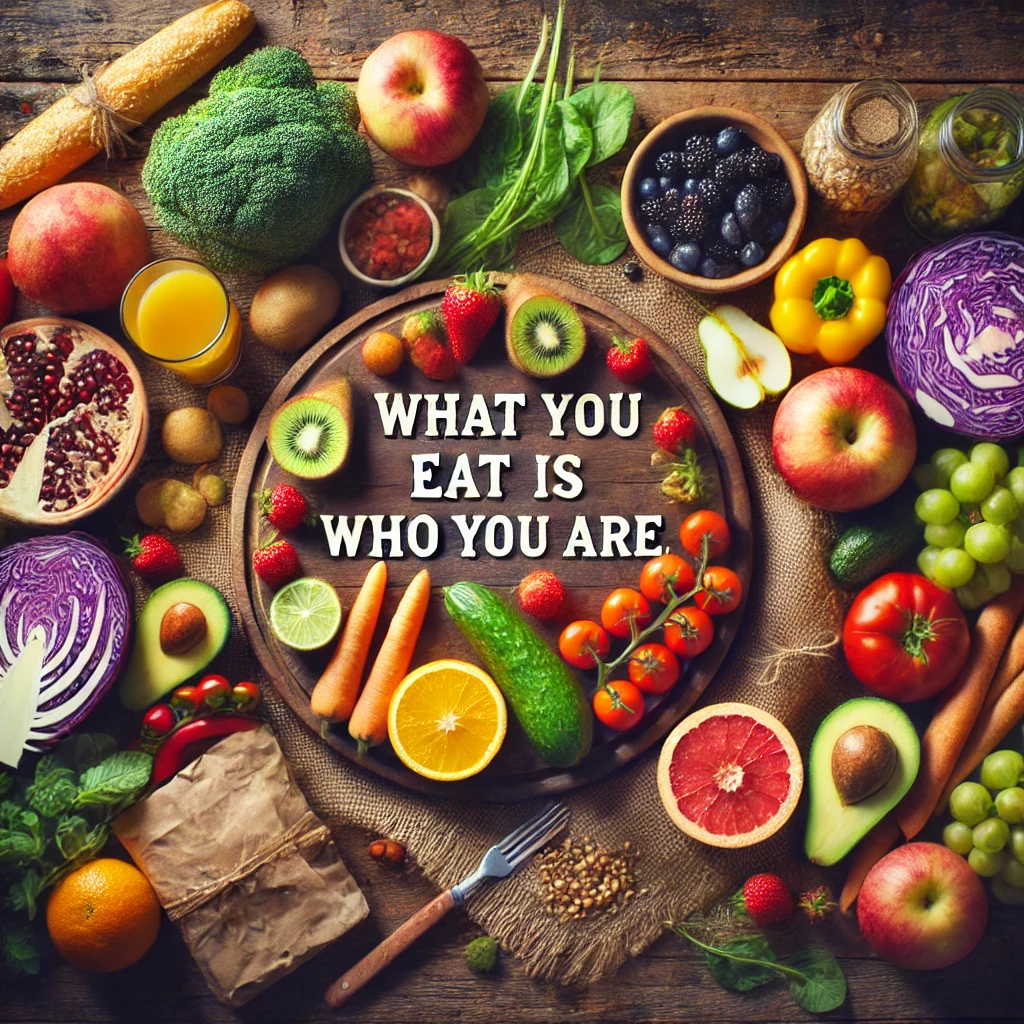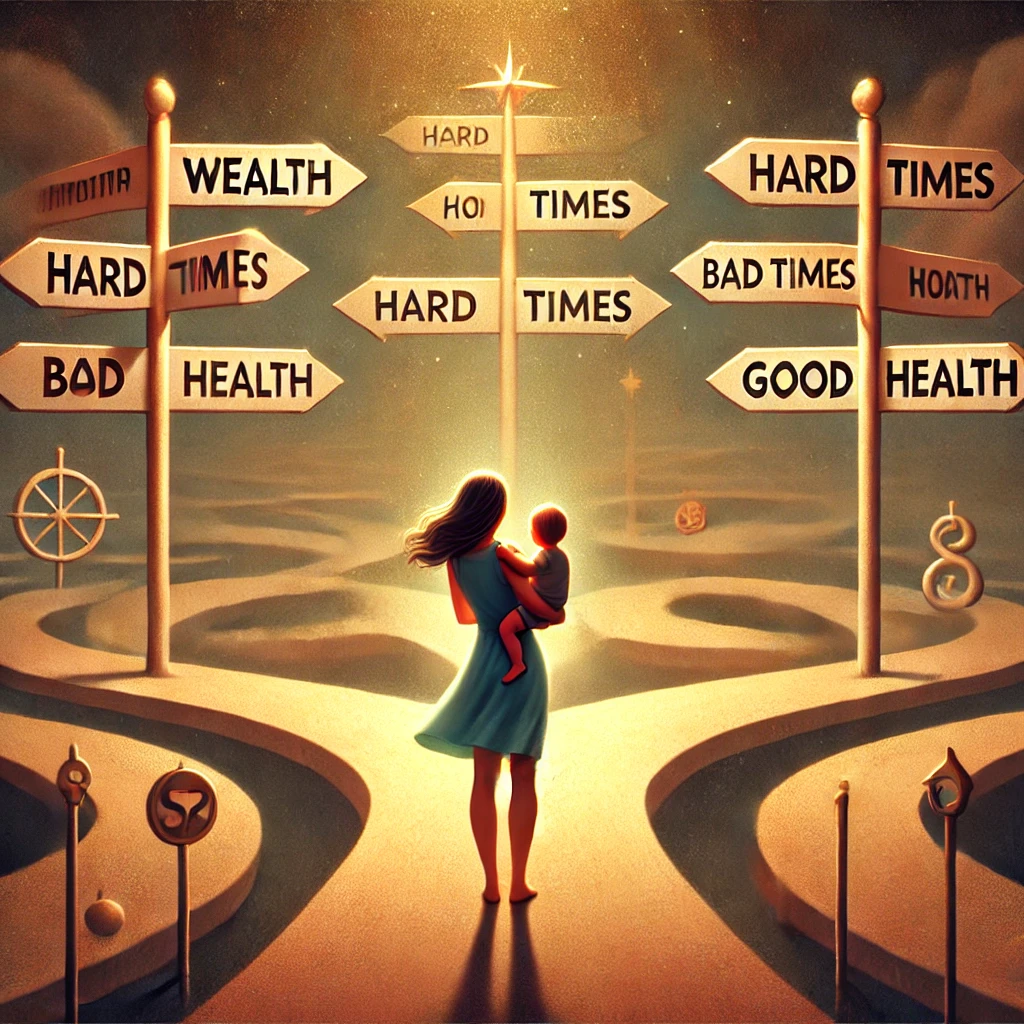Life. It’s something we’re all given, yet many seem to drift through it on autopilot—stuck in routines, feeling unfulfilled, and wondering why everything feels so empty. For us, we noticed that genuine satisfaction comes from paying attention to a few key areas. These are some essential elements that have helped transform our lives and minds as a family, breaking us from the status quo and we believe they can make a difference for you, too. Recognizing what’s missing can be the first step to breaking free and taking control of your thoughts.
1. The Influence of Your Inner Circle
Most people underestimate the power of their inner circle—the close friends, family members, and colleagues we interact with regularly. Yet, these individuals have an incredible impact on our beliefs, habits, ambitions, and even our self-worth. Every conversation, every shared opinion, and even the silent judgments we feel from them subtly shape us. This influence is so strong that, as Jim Rohn famously said, “You are the average of the five people you spend the most time with.”

But what if this influence wasn’t just incidental? What if it’s part of a subtle, societal pattern designed to keep people grounded in the familiar and unchallenged?
The Pull of Comfort and Familiarity
We all know change is hard. And for many, the idea of growing or evolving—especially if it means breaking away from a current situation—can feel threatening. Here’s where the concept of “status quo bias” comes in. Status quo bias is a psychological phenomenon where people prefer things to stay the same. It’s familiar, it’s predictable, and it doesn’t force anyone to challenge their beliefs or lifestyle.
When someone close to you sees you attempting to change, whether it’s adopting a healthier lifestyle, pursuing a new career, or stepping out of your comfort zone, they may feel an underlying discomfort. They might wonder, “If they’re changing, what does that mean for me?” Consciously or unconsciously, they may respond by questioning your choices, teasing your aspirations, or subtly suggesting that you’re being unrealistic. These responses aren’t always from malice; sometimes, they’re simply reactions rooted in fear and the desire to keep things familiar.
Society’s Subtle Design: Reinforcing the Status Quo
Think about the way society is structured. From an early age, we’re encouraged to form close groups, stick with similar-minded people, and stay loyal to these circles. Schools, workplaces, and even social media tend to form echo chambers, environments where people are exposed only to ideas that reinforce their existing beliefs. These echo chambers can make it difficult for people to branch out and explore new ways of thinking.
In a way, this societal setup discourages change and nudges people to conform. Why? When people stay in predictable routines and belief systems, they are easier to manage and influence. A society where most people follow similar norms is less likely to challenge authority, pursue unconventional paths, or question systemic problems. And when we’re surrounded by people reinforcing the status quo, it’s tough to break out.
Fear of Being “Too Different”

The fear of being “too different” is powerful, and it can keep people from pursuing their true potential. Sometimes, people fear that if they grow and change too much, they’ll lose their connection to their inner circle. For instance, if you start a business and spend your evenings working on it instead of going out with friends, your social group may express frustration or seem less interested in spending time together. This is uncomfortable; after all, no one wants to feel isolated. So, many people compromise their dreams to stay in harmony with their circle.
Break Free from the Influence of the Status Quo
Recognizing these influences doesn’t mean you have to distance yourself from everyone close to you. Instead, it’s about becoming aware of these subtle pulls and choosing to surround yourself with people who encourage your growth. Some strategies include:
- Reflect on Your Inner Circle’s Impact: Take a hard look at who surrounds you. Do they uplift you, or do they leave you feeling discouraged?
- Seek Out Like-Minded People for Growth: This doesn’t mean abandoning current friendships; it’s about intentionally adding people who encourage your growth.
- Be Open about Your Intentions: When people in your inner circle are aware of your goals, they may start to understand your journey and could even support you. Be clear and firm about what you’re trying to achieve.
- Set Boundaries Where Needed: If someone consistently undermines or discourages you, establish healthy boundaries. Spend less time discussing certain topics, or reduce your exposure to their negativity.
By understanding these patterns and actively choosing who influences us, we can surround ourselves with people who support our growth, rather than those who inadvertently (or intentionally) hold us back.
Conspiracy Tidbit: Ever wonder why “the system” promotes cliques and exclusive circles from a young age? It’s one way to keep us from connecting with people who challenge us to think independently.
2. What You Eat Is Who You Are (And How You Feel)
“You are what you eat”—and this goes deeper than nutrition.

If you’re constantly eating junk food, processed meals, or sugar-loaded treats, it’s not just your waistline that suffers. The food you consume impacts your mental clarity, mood, and resilience. Think about it: when’s the last time you ate a whole-food meal and didn’t feel a surge of energy and mental sharpness? Coincidence? Probably not. Yet so many people settle for subpar food options, not realizing it’s part of why they feel sluggish, apathetic, and unmotivated.

The food industry spends billions to keep us addicted to cheap, convenient, and harmful foods. Some say it’s just capitalism, but maybe there’s more to it. When we’re fogged up on sugar and additives, we’re easier to control. Staying dependent on poor-quality food might be a deliberate tactic to keep people feeling “blah” and compliant.
Simple Shifts for a Boost:

- Start Small: Swap one processed snack with a whole food daily. Take a home packed lunch to work instead of going through the drive thru one day out of the week. Notice the difference in your mood!
- Hydrate, Hydrate, Hydrate: Often, fatigue is actually dehydration. Get your water in!
- Track Your Feelings: Write down how you feel after eating certain foods. The insights might surprise you.
Conspiracy Tidbit: Ask yourself—who benefits when you’re tired, unfocused, and desperate for quick sugar fixes? Maybe it’s time to consider that our diets are influenced to keep us in the dark, literally and figuratively.
3. Gratitude: The Secret Ingredient to Peace and Power
“Want to change your world? Start by changing what you focus on.” -Admiral William H. McRaven
Most people wander through life unaware of the blessings around them. They chase after the next big thing, all while ignoring the gifts they already have. We as a family have been guilty of this very thing! But here’s the deal: gratitude rewires your brain. It creates resilience, enhances happiness, and makes you more present. If you want to live a life of power and peace, gratitude isn’t optional—it’s essential and needed! Our lives have enhanced ten fold since gratitude has been introduced into our daily routine.
Studies show that practicing gratitude consistently can lead to higher life satisfaction and even better health. But let’s dig down deeper: what if there’s a hidden power in gratitude that “the powers that be” don’t want us to discover? Focusing on what’s good, instead of what we lack, makes us less susceptible to marketing, propaganda, and fear-mongering tactics.
Practical Gratitude Exercises:
- The Morning: Start each day by writing three things you’re grateful for. It doesn’t have to be profound—just real.
- Gratitude in the Storm: When things go wrong, find the silver lining. It might be hard, but it’s life-changing.
- Express It: Tell someone why you appreciate them. It boosts your mood—and theirs.
Conspiracy Tidbit: If gratitude brings peace, why isn’t it taught in schools? Perhaps a grateful, content society isn’t as profitable.
4. Seeing Who Your Real Higher Power Is and Embracing Change
“True power doesn’t come from external sources; it’s something you tap into within.” – Various thinkers
Everyone has an inner calling, a connection to something greater. But so many people are chasing external sources for guidance and peace, never stopping to look within. Religion, politics, entertainment—all these “authorities” claim to have the answers. But could they be distractions? Real connection to a higher power is personal, direct, and liberating.

In many spiritual and ancient practices, the idea of an “inner kingdom” is central. We’re taught to look outside for validation, yet everything we need lies within. Whether you call it God, the Universe, or something else, connecting to this power provides a true sense of purpose and resilience.
Letting go is essential here, especially when it comes to releasing what no longer serves you. Let’s dive deeper, as many of us carry burdens from past pain, trauma, or self-limiting beliefs. Embracing change and letting go often means confronting and releasing the deep-seated emotions and experiences that keep us rooted in the past.
Recognizing the Weight of What You’re Holding Onto
Past pain and trauma don’t just live in our memories; they affect our everyday thoughts, behaviors, and relationships. They can create self-doubt, hold us back from healthy relationships, and even cloud our view of what’s possible and real. The first step to letting go is recognizing how these past experiences are influencing your present. It’s not about blaming or reliving these moments—it’s about understanding that holding onto pain limits your ability to grow.
For example, someone who grew up in an abusive environment might unconsciously carry feelings of unworthiness, fear, or mistrust into adulthood. Acknowledging that these emotions and patterns are tied to the past is crucial. It brings clarity to how much they affect our daily lives and lays the foundation for change.
Letting Go Doesn’t Mean Forgetting
This has been particulary hard for me at times due to my abusive childhood. Letting go of something doesn’t mean forgetting or minimizing it. It’s not about pretending it didn’t happen. Instead, letting go is a conscious choice to not let these experiences define you or control your future. It’s about releasing their grip on your self-image and choices.
This process may involve reframing how you view the experience. For example, instead of seeing yourself solely as a victim of past abuse or hardship, you might begin to see yourself as a survivor—someone who has gained strength and resilience through those experiences.
Releasing What No Longer Serves You: The Healing Process
The act of “releasing” involves a conscious decision to let go of the emotional and mental weight that past pain places on you. This might mean addressing and processing these experiences through methods like journaling, meditation, or support groups. Healing doesn’t mean the memories vanish; it means they no longer control you.
Forgiveness can also be a powerful part of this process. Forgiveness doesn’t mean excusing someone’s behavior—it’s about freeing yourself from the hold that person or experience has on your mind and heart. Forgiving others (and often I have found, forgiving yourself) creates space for growth and peace, allowing you to live without carrying resentment.
Creating Space for New Growth
Holding onto past pain is like trying to grow a garden in soil that’s overrun with weeds. True growth happens when we create space for new experiences, new beliefs, and new self-images to flourish. By releasing what no longer serves you, you allow yourself to embrace relationships, beliefs, and habits that uplift you.
Imagine your heart and mind as a room. If it’s filled with emotional clutter from past pain, there’s little space left for joy, peace, or connection. By clearing out that clutter, you create room for these positive experiences.
Allow Yourself to Feel and Release
Letting go isn’t an overnight process. It’s natural to experience grief, anger, sadness, or regret as you release the past. Allow yourself to feel these emotions fully, without judgment. By experiencing them, you’re allowing them to move through you, rather than letting them build up inside.
Acknowledge each feeling, let it have its moment, and then consciously release it, reminding yourself that these emotions don’t define you or your potential.
Conspiracy Tidbit: Why do so many systems push external authority? When people recognize their own power, they become harder to manipulate.
5. Overcoming Fear, Doubt, and Disbelief
“For God did not give us the spirit of fear, but gives us power, love, and self-discipline.” 2 Timothy 1:7 (NIV):
Most people are held back by a constant cycle of fear, doubt, and disbelief. These feelings are normal, but when unchecked, they become chains. We’re constantly bombarded with messages designed to make us feel like we’re not enough or that the world is a scary place. Is it possible that these messages are intentional? Fear keeps people in place—it’s a powerful control tool.
When you overcome these inner barriers, you become resilient, unshakeable. The darkness exists, yes, but so does the light. Accepting both sides, embracing the duality of life, is what leads to true freedom which is being a true free thinker.

Steps to Overcome Fear and Doubt:
- Identify and Acknowledge: Fear can’t control you if you face it head-on.
- Embrace Duality: Recognize that life’s highs and lows are both essential to your growth.
- Take Action: Start with one step, even if it’s small. Progress fuels confidence. What thing do you fear and can you cause yourself to think positivly about it instead of fearful?
Conspiracy Tidbit: Ever wonder why society feeds us fear? A fearful population is easier to control, easier to distract, and easier to lead.
6. (This one’s just for fun!) One Major Conspiracy: The “Bread and Circuses” Effect
Here’s a deep dive into a major conspiracy tied to keeping society distracted and disempowered.
The concept of “bread and circuses” dates back to ancient Rome. The empire kept its citizens pacified by providing free food (bread) and entertainment (circuses), diverting their attention from issues of real importance. Fast forward to today, and we see a modern-day version of this tactic. In our society, “bread” is cheap, addictive food, and “circuses” are endless streams of entertainment—whether it’s TV, social media, or celebrity gossip. The goal? Keep the public occupied and distracted so they won’t challenge or question those in power.

Consider this: how many people spend hours each day scrolling on social media or watching reality TV? How much of the food we consume today is not only cheap but scientifically engineered to keep us craving more? This endless cycle of consumption keeps us dependent, dulled, and disconnected from our true potential.
Tips to Break Free from the “Bread and Circuses” Trap:
- Limit Screen Time: Replace an hour of mindless scrolling with an hour of reading or personal growth. Continue to replace as many hours as possible until the balance is created!
- Choose Real Foods: Opt for foods that nourish rather than sedate. Look within and see your true potential and embrace the better choices!
- Seek Meaningful Experiences: Instead of passive entertainment, look for activities that engage your mind and spirit with others!
Conspiracy Conclusion: “Bread and circuses” might seem like an ancient concept, but it’s very much alive today, keeping us comfortable enough not to question or resist.
10 Q&A – Most Common Questions about “Why Most People Are Stuck in Life.”
- Why do you think most people feel unfulfilled?
Because they’re often stuck in routines and unaware of the key elements that make life fulfilling, like meaningful connections, purpose, and gratitude. - How do my friends really impact my future?
Jim Rohn said it best: “You are the average of the five people you spend the most time with.” Your friends’ habits, mindsets, and values shape your own. - What are some signs I’m eating poorly for my mental health?
Fatigue, mood swings, and lack of mental clarity are often signs. Processed foods can affect both your physical and mental energy. - How does gratitude change my life?
Gratitude shifts your mindset, helping you focus on the positive. This can improve resilience, relationships, and mental well-being. - What’s the “higher power” you mention?
It’s a personal concept. It could be God, the Universe, or your inner spirit. It’s about connecting to a source beyond the daily noise. - Can fear really be intentionally used against us?
Some believe fear is used as a societal control tool. When people are afraid, they are more dependent and less likely to challenge the status quo. - How can I start setting boundaries with negative friends?
Politely limit time spent with them and seek out new, growth-oriented social circles. It can be hard, but it’s essential for personal growth. - Why isn’t gratitude taught in schools?
A grateful, content society isn’t as profitable in a consumer-driven world. This perspective suggests that dissatisfaction drives demand. - What’s a practical first step to find my inner peace?
Start with quiet reflection or meditation. Just a few minutes a day can bring clarity and connect you with a sense of purpose. - Can I apply these changes gradually, or should I overhaul my life?
Gradual change is more sustainable. Try implementing one principle at a time and see how each positively impacts your life.
Reclaiming the Life You Deserve
If you’re feeling a mix of inspiration and discomfort right now, that’s a positive sign. Recognizing these truths is no easy feat, but it’s the beginning of true freedom. Each insight you’ve gained here isn’t just a suggestion—it’s an invitation to reclaim your life from the forces that keep you stagnant. Remember, your journey to a fulfilling life starts with a choice.
You don’t have to stay stuck in old patterns, follow unfulfilling routines, or accept a life that doesn’t light you up. You have the power to make different choices—choices that serve your growth, your peace, and your purpose.
Take ownership of your path. Don’t settle for the status quo.
Let’s reclaim what is rightfully our’s in this digital noise we live in. Join us in this exploration of how deep the rabbit hole actually goes.

No responses yet